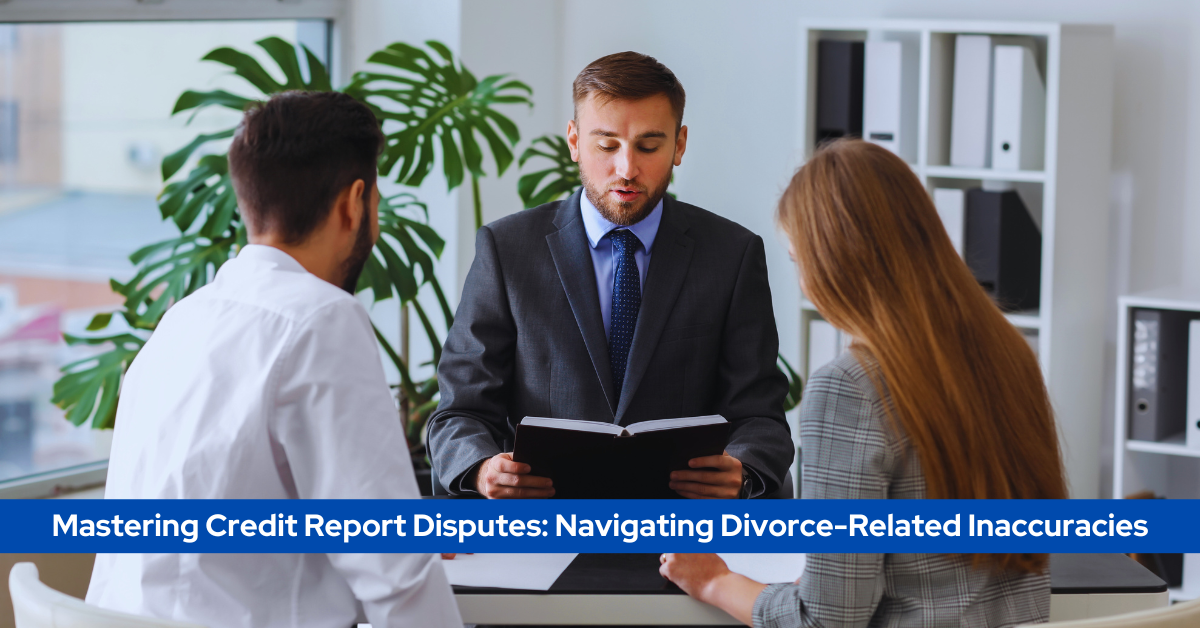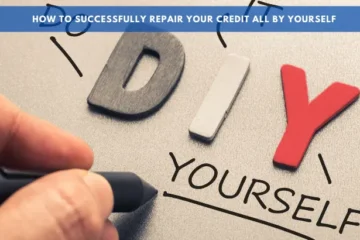Divorce may be a drastically altering process that not only has a financial impact but also an emotional one. How this can impact your credit reports is something that is sometimes disregarded. Divvying up money and assets during this procedure can get ugly, resulting in misunderstandings and arguments that affect credit report accuracy. These mistakes may have serious repercussions on your ability to get loans, rent an apartment, or even find work. We’ll examine the challenges of managing credit report disputes resulting from errors linked to divorce in this post, and we’ll also provide helpful guidance on how to handle this challenging scenario.
Understanding the Impact of Divorce on Credit Reports
Beyond the emotional and financial issues it entails, divorce has a substantial influence on credit reports. Even if they are not at fault for the issues, joint accounts and shared debt can expose people to their ex-spouse’s financial decisions, thereby lowering their credit scores. The asset and debt division can result in disputes and mistakes, necessitating meticulous attention and paperwork. Inaccurate credit report information might result from failing to update name following a divorce with creditors and credit reporting agencies. Missed payments brought on by stress might further damage a person’s credit score. It’s critical to comprehend these aspects and take early steps, such as closing joint accounts and preparing post-divorce budgets.
Common Credit Report Inaccuracies in Divorce Cases
Credit report mistakes are frequent and have serious ramifications in divorce situations. Misattributed debt, in which a shared obligation is given to one spouse in the decree but is not updated by creditors, is a common problem. Both spouses’ credit scores are impacted by the widespread occurrence of late payments brought on by financial stress during divorce. Joint accounts that were supposed to be canceled or transferred can still be active, putting both partners at risk of debt. Additionally, inaccurate information on credit reports can result from neglecting to promptly update personal information, such as name changes, with creditors and credit reporting organizations. For those going through it, it’s crucial to recognize these common mistakes since correcting them right now is crucial for post-divorce financial stability.
Review Your Credit Reports
Reviewing your credit reports is an essential step in handling credit report disputes brought on by inaccurate information relating to your divorce. To start, get copies of your credit reports from Equifax, Experian, and TransUnion, the three major credit reporting organizations. Check each report thoroughly for any inconsistencies, such as mistakes with account status, ownership, or personal information. Make a thorough note of these errors, together with any supporting documentation such divorce judgments or court orders. When you speak with creditors and credit reporting agencies to dispute and remedy the errors, this complete documentation will be crucial. Your progress in the dispute process will be regularly tracked to guarantee that your credit reports are immediately corrected.
Navigating Credit Report Disputes
Managing credit report disputes can be difficult but is a crucial part of money management, particularly when errors are caused by divorce-related problems. It’s critical to start by carefully reading your credit reports and identifying any differences with supporting documentation in order to address these disputes successfully. A crucial first step is to talk to your creditors about problems with your joint accounts and debt. If necessary, you should next file a dispute with the credit repair company. Throughout this procedure, timely follow-up and progress monitoring are crucial. It could be necessary to seek legal counsel in circumstances that are especially difficult. Additionally, taking preventative steps before issues develop, such as deleting joint accounts and updating personal information, can help protect your credit and guarantee your financial security both before and after a divorce.
Preventive Measures to Safeguard Your Credit
Taking proactive steps to safeguard your credit during and after a divorce is crucial for maintaining financial stability. A fundamental action is closing joint accounts to sever financial connections with your ex-spouse. If this impossible, collaborate to remove your name from these accounts and inform creditors of the divorce and updated responsibilities. It’s equally vital to keep personal information current with creditors and credit repair agencies, especially for name changes, to prevent inaccuracies on your credit report. Establishing a practical budget post-divorce and maintaining open communication with your ex-spouse regarding financial commitments further contribute to a healthier financial future. These proactive measures enable you to navigate the complexities of divorce-related financial issues and ensure your credit remains in good shape.
Conclusion
In conclusion, divorce is a trying life experience that might affect your credit reports in the future. It’s important to take the initiative to handle and contest any inaccuracies that could result from divorce-related financial concerns. Ensure a secure financial future by vigilantly reviewing credit reports, addressing discrepancies, and following recommended steps. Protecting your credit during and after divorce maintains financial stability and independence amidst life’s challenges.
FAQs
1. What are errors on credit reports, and how do they relate to divorce?
Credit report inaccuracies are mistakes or incorrect details found on your credit report. Their significance arises during divorce due to mishandled shared financial matters, like accounts or loans, causing credit report inaccuracies.
2. What kinds of errors can appear on credit records during or following divorce?
Account status errors, missing payments, accounts that ought to be canceled but aren’t, and debts assigned to the wrong party are examples of frequent inaccuracies.
3. How can you challenge errors on your credit record caused by a divorce?
Inform the credit bureau(s) in writing of the errors and provide any supporting documentation. The bureaus will look into it and let you know what they find.
4. Can divorce decrees or legal documents help in credit report disputes?
Yes, divorce decrees and legal documents can serve as valuable evidence in disputing inaccuracies, especially when they specify which party is responsible for certain debts.




